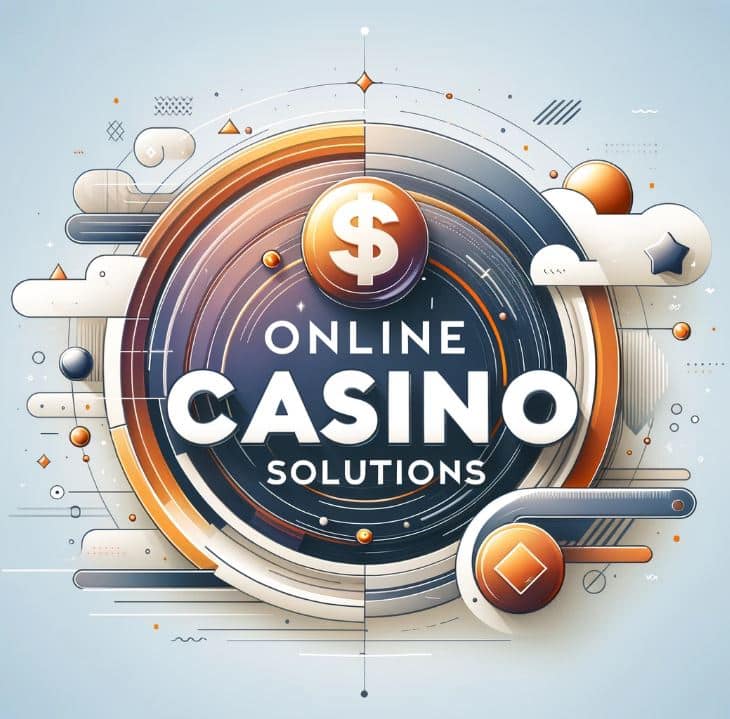GBO Delivers a Full-Solution Online Casino Company
We provide everything from payment solutions to banking management, collaborating with merchants, securing licenses, and corporate services. Our expert team is here to guide you at every stage.
Licensing | Banking Solutions, Merchant Solutions | Systems and White Label | Corporate
- Dedicated to Your Success: GBO is committed to the triumph of your online casino venture. Seeking Expertise in Casino Software?
- Your search ends here. We have all the expertise you need. Introducing GBO: Experts in online casino software, equipped with the best team to assist you.
- Comprehensive Solutions for Every Casino: Whether your operation is nascent or established, large or small, we offer tailored solutions for every software need.
- Opt for Excellence with GBO: Choosing us means opting for superior assistance and tangible success.
We Can Help You to Start your Gaming Company
WhatsApp us: +972504938469, email us: [email protected]
Understanding Online Payment Aggregators for iGaming
What is the Gaming Aggregator of an online casino?
In the digital iGaming sector, a gaming aggregator acts as a crucial middleman between online casinos and payment processors. These aggregators simplify the payment process for both the player and the casino by combining several payment services onto one platform. Ever wondered how your favorite online casino manages transactions so smoothly? The gaming aggregator’s efficiency is often the key to the solution.
Payment Gateways for Online Gaming’s Business Model
The mutualistic business model of a gaming aggregator is an intriguing one. They charge for an advantageous service that they provide to casinos through the integration of multiple payment systems. This fee could take the form of a percentage of the transaction value, a fixed rate per transaction, or a monthly subscription. What aspects affect casinos’ choice of a specific aggregator, and how viable is this model in the fiercely competitive online gaming industry?
The Best Gaming Payment Gateway’s Features
What sets a superior payment aggregator apart from its rivals? Strong security measures, a variety of payment options, quick transaction processing, and great system uptime are among the most often mentioned features. They may also offer analytics and reporting tools that help casinos understand payment trends. How are these features advantageous to real-world players as well as casinos?
Payment Gateways for Gambling: Benefits and Cons
Justifications for Aggregators
There are several advantages and disadvantages to using a payment aggregator. Despite their ease of use and efficient operations, their reach is increased by the variety of payment options. On the other hand, they might add extra fees, make payment reconciliation more difficult, and depend on a third-party service.
The Online Casino Payment Gateway Flow
The moment a player decides whether to deposit or withdraw money, the aggregator kicks in. The process consists of multiple steps that guarantee a smooth user experience, starting with authentication and ending with the actual transfer of funds. The Online Casino Payment Gateway enables to the online casino to collect its player’s funds.
Payment Gateway Integration Issues for Online Casinos
Integration of a payment aggregator comes with a number of challenges. Among the many obstacles to overcome are worries about compliance, technological difficulties, and the provision of an efficient user experience.
Seamless and safe payment process
- To guarantee a seamless and safe payment process, casinos should take into account a number of important concessions when selecting a payment aggregator. These compromises are necessary to preserve transaction integrity and offer a satisfying user experience.
- Security Measures: In order to safeguard sensitive financial information, casinos must make sure that the payment aggregator complies with stringent security requirements, such as PCI DSS compliance. This could entail giving up rights to fraud detection programs, data encryption, and frequent security audits.
- Transaction Speed: To retain customer satisfaction, casinos must make sure that transaction processing happens quickly, even though security is of the utmost importance. If they want to maximize transaction speed without sacrificing security, they might have to collaborate with the aggregator.
- Payment Methods: It should be possible to use a variety of payment methods, including bank transfers, credit cards, e-wallets, and maybe cryptocurrency. In order to serve a broad spectrum of patrons, casinos may have to give in on integrating multiple payment methods.
- Fees and Commissions: It’s important to haggle over the fees and commission amounts. Casinos should strike a balance between the service’s affordability and the level of quality and security it provides.
- Compliance and Regulatory Requirements: It’s critical to follow national and international financial and gaming laws. It may be necessary for casinos to collaborate with aggregators who are knowledgeable about these rules.
- Technical Support and Integration: It’s critical to guarantee that the aggregator offers strong technical support and simple integration with the casino’s current systems. This may entail making adjustments to customization and technical support.
- User Experience: The payment procedure ought to be simple and easy to use. It might be necessary for casinos to collaborate with the aggregator to tailor the payment gateway in order to meet their branding and user experience objectives.
These waivers guarantee that the payment flow strikes a balance between security and speed by:
putting in place cutting-edge security measures that safeguard data without appreciably slowing down transactions.
making use of processing technology that is efficient and speeds up the approval and verification of transactions.
updating systems often to mitigate emerging security risks and boost processing efficiency.
Common integration obstacles that aggregators and casinos collaborate to get past are as follows:
- Problems with Compatibility: Making sure the payment system works flawlessly with the platforms and software the casino already uses.
- Regulatory Compliance: Handling the intricate regulatory environment surrounding financial transactions and online gaming.
- Data security concerns include creating a safe environment to guard against fraud and data breaches.
- The challenge of user experience is to design a payment interface that is user-friendly for a wide range of customers.
- Technical Limitations: Overcoming technological constraints that can make it difficult to process transactions smoothly or put security measures in place.
- Casinos and payment aggregators can work together to resolve these problems and establish a safe, effective, and user-friendly payment environment.
FAQs
Q1: In what ways does a payment aggregator mitigate the risks associated with online shopping?
A1: By putting strong security measures in place to identify and stop fraudulent activity, such as two-factor authentication, SSL encryption, and continuous surveillance.
Q2: In the age of digital currencies, how much do payment aggregators show that they can adjust to cryptocurrencies?
A2: A lot of modern payment aggregators have been able to successfully adjust to the quickly growing digital currency market by obtaining the required skills to handle bitcoin transactions.
Q3: Based on what criteria are the transaction limits for payment aggregator usage established?
A3: Payment aggregator policies and the rules governing payment methods they support typically set transaction limits.
Q4: Since compliance is crucial in the iGaming industry, what methods do payment aggregators use to make sure they follow legal requirements?
A4: They stay up to date on changes to gambling laws in addition to adhering to know your customer (KYC) and anti-money laundering (AML) regulations.
Q5: How much of an impact do payment aggregators have on players’ retention at online casinos?
A5: Streamlining the payment process can significantly improve the user experience, which will raise player retention rates.
Q7: How much customer service do payment aggregators offer, and what kinds of issues do they typically handle?
A6: A sizable portion of aggregators offer thorough customer service to handle questions about payments, technical issues, or transactions.
Q8: What steps can casinos take to cut down on the costs that payment aggregators take? Are these companies’ fees open and honest?
A7: Aggregators are often forced by competitive market forces to disclose their fees up front, even though provider transparency may vary.
Q8: How can payment aggregators minimize user experience disruption while handling the complex process of chargebacks and refunds?
A8: To effectively manage the competing interests of the casino and the customer, efficient procedures are usually put in place to handle these financial affairs.












